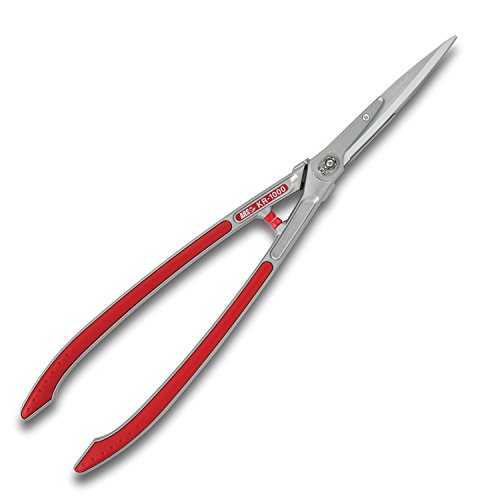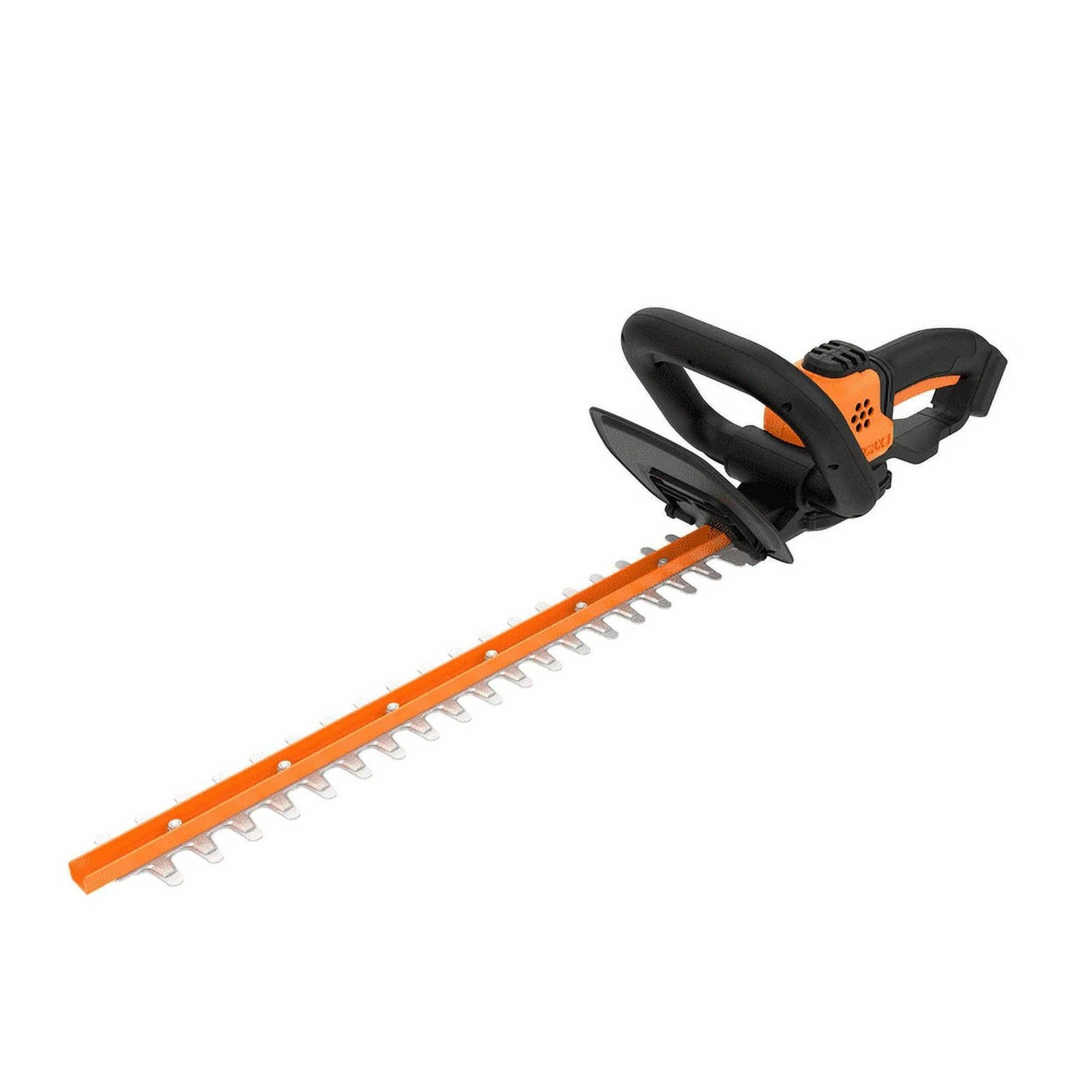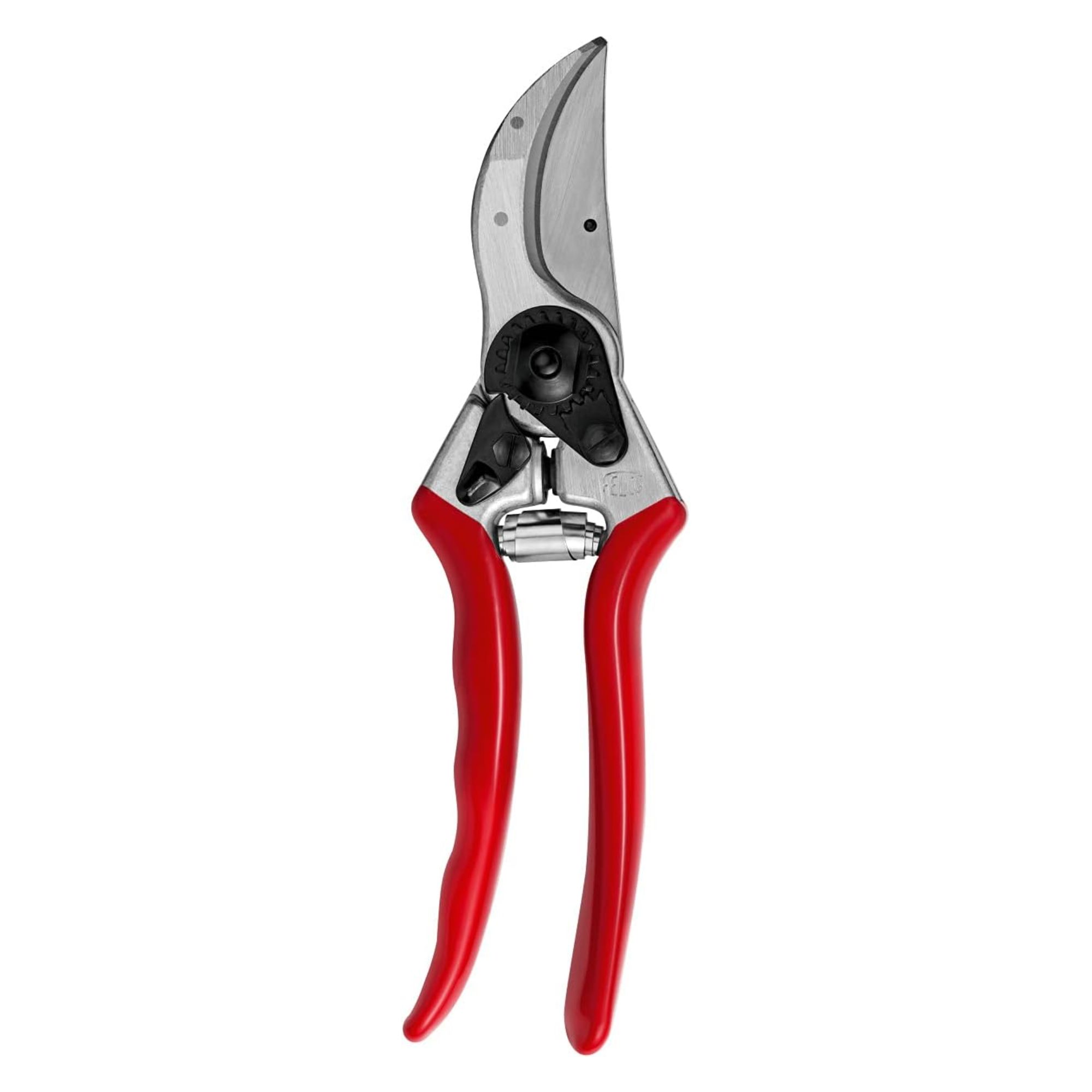Can I cut my neighbor's hedge? Legal and real estate experts provide clarity on this often confusing issue
It's not always obvious if you can trim a hedge growing into your yard, so we asked the experts about the law


Design expertise in your inbox – from inspiring decorating ideas and beautiful celebrity homes to practical gardening advice and shopping round-ups.
You are now subscribed
Your newsletter sign-up was successful
Want to add more newsletters?

Twice a week
Homes&Gardens
The ultimate interior design resource from the world's leading experts - discover inspiring decorating ideas, color scheming know-how, garden inspiration and shopping expertise.

Once a week
In The Loop from Next In Design
Members of the Next in Design Circle will receive In the Loop, our weekly email filled with trade news, names to know and spotlight moments. Together we’re building a brighter design future.

Twice a week
Cucina
Whether you’re passionate about hosting exquisite dinners, experimenting with culinary trends, or perfecting your kitchen's design with timeless elegance and innovative functionality, this newsletter is here to inspire
An unruly hedge can be the flashpoint of many disputes with neighbors. Part of the issue is that it can seem unclear who owns which part of a hedge. If the trunks of the hedge plants are in your neighbor's yard, but the branches grow into your yard, you might hesitate to prune them.
It can feel even more complicated when it comes to things like shared fences or shared hedges, especially if you've just moved into a new place and you are not sure of arrangements the previous neighbors had in place.
Thankfully, the law is clear: you can trim the branches of plants growing into your yard, as long as you don't overstep the property line. However, legal experts told me that there are a couple of caveats.
Can you trim your neighbor's hedge if it's growing into your garden?

Wherever you are in America, the law is clear. Anything growing on your property is your business, so if your neighbor's hedge has grown over your property lines, you're well within your rights to trim it. Attorney Mark Hirsch told me that 'If a hedge grows into your yard, you can usually cut back the branches that hang over to the property line.'
However, there are a couple of complicating factors. If you have a shared hedge, you can only trim up to the property line, wherever that falls. You might need to check the exact dimensions of your lot to make sure you don't over-trim by accident. It's unlikely, but if you accidentally trim into your neighbor's yard they could potentially sue you.
You have to be precise when trimming your hedge. Real estate expert Seamus Nally told me 'if your neighbor’s hedge has grown into your yard, you have the right to trim it – but only up to the exact property line. You can’t go past that point, and you are not allowed to go into their property to trim it unless they give permission.' Even if there's a troublesome branch that would look much better if you trimmed it, you can only touch it if it's on your property.

Mark Hirsch is a Co-Founder and experienced Personal Injury Attorney with an Accounting degree from Florida State University. He specializes in car accidents, as well as Longshore and Defense Base Act cases. Mark is also the founder of Prime Time Business Network. In his free time, Mr. Hirsch enjoys coaching children in sports, networking and community involvement and helping clients navigate the legal system.

Seamus is the CEO of TurboTenant, a landlord software company, and a landlord of several residential properties in upstate New York and Colorado.

These are the best hedge shears you can buy. Weighing just under two pounds, they're one of the lightest shears I've ever used, so you never get tired while you use them. Best of all, the blade is astonishingly sharp, so they're perfect for topiary and precise trimming. They're not always great for tackling thick branches, but they excel at almost every task I've tested them on.
Can you trim a neighbor's hedge if it's blocking your sight lines?

Sightlines are a trickier issue. Hedges are your neighbor's property, and in most cases, you don't have a right to a view. However, there are two cases where you can ask your neighbor to trim their hedge.
Design expertise in your inbox – from inspiring decorating ideas and beautiful celebrity homes to practical gardening advice and shopping round-ups.
The first is if the hedge is blocking sight lines for vehicles. Attorney Mark Hirsch says that 'If a hedge gets in the way of your view, like when it stops a driveway or road view, you may have more reasons to ask for it to be trimmed for safety.' In fact, your local municipality may ask your neighbor to trim their hedge, and in many places, the city has the right to remove fences and hedges that block sight lines on intersections or grow too close to power lines.
The other case where you can ask your neighbor to trim their hedge is if the hedge was planted maliciously. Some states and municipalities have laws concerning 'spite fences', which may apply to hedges too. A spite fence is a fence erected to block a neighbor's view or prevent sunlight from reaching their backyard. In some cases, spite fence laws also apply to hedges.
For example, in California, if your neighbor grows a hedge higher than 6 feet they may be made to trim it. However, they have to have done so maliciously, so if your neighbor just happens to have a tall hedge that accidentally blocks sunlight in some of your garden, they're entitled to their hedge. In Oklahoma, a tall hedge that's unsightly can also be considered a spite fence, so you'd be able to file a lawsuit.
However, it must be said that a lawsuit is an expensive time-consuming solution. Unless you've fallen out with your neighbor, asking them to trim the tip of the hedge is almost always a better solution.
Can you trim a neighbor's hedge if it is dangerously overgrown?

You can only prune hedge branches that fall on the other side of your property line, even if this causes a hazard. For example, if you diligently trim the hedge on your side of the line, but your neighbor lets theirs grow, it can cause an imbalance in the hedge plants that can make them lean, potentially uprooting them and causing damage.
However, all you can do in this situation is ask your neighbor to trim their side of the hedge to fix the leaning. If they don't want to, they don't have to. Attorney Mark Hirsch says 'If you see a dangerously overgrown hedge that puts people or cars at risk, you should talk to your neighbor about your worries. If you can't work things out with the other person, you should speak to the police or a lawyer about what to do next.'
What should you do if a neighbor trims your hedge?

All of the above applies if a neighbor trims your hedge. If your neighbor trims a hedge that starts in your garden but grows into theirs, they can prune the branches back to the property line. They're only breaking the law if they trim beyond the property line, or enter your yard to get a better cut without permission.
In almost every case, your first move should be to talk to your neighbor about any potential issues. A neighbor cutting your hedge is almost always a mistake and can be resolved amicably. A neighbor rarely cuts a hedge out of spite, but if they trim too far on purpose in order to damage your hedge, it's like any other sort of criminal damage. In this case, you may want to speak to a lawyer about how you can proceed.
Hedge pruning FAQs
When should I prune a hedge?
Try to avoid pruning a hedge between April and August, as this is the nesting period for birds like robins and you could destroy their nests. Furthermore, you could damage your plants if you prune them in hot, dry weather. The best time to prune a hedge is in late spring or early fall. If you need to prune a hedge in summer, do it in cooler weather.
As we've said, it's almost always better to speak to your neighbors first before involving the law about any overgrown hedge disputes. The chances are they will want to resolve matters amicably. For more help with hedges, take a look at our pick of the best fragrant hedge plants, the best low-maintenance hedge plants, or the best intruder-proof hedge plants.

As a gardens and lifestyle contributor, Alex makes sure readers find the right information to help them make the best purchase. Alex got his start in reviewing at the iconic Good Housekeeping Institute, testing a wide range of household products and appliances. He then moved to BBC Gardeners’ World Magazine, assessing gardening tools, machinery, and wildlife products.

